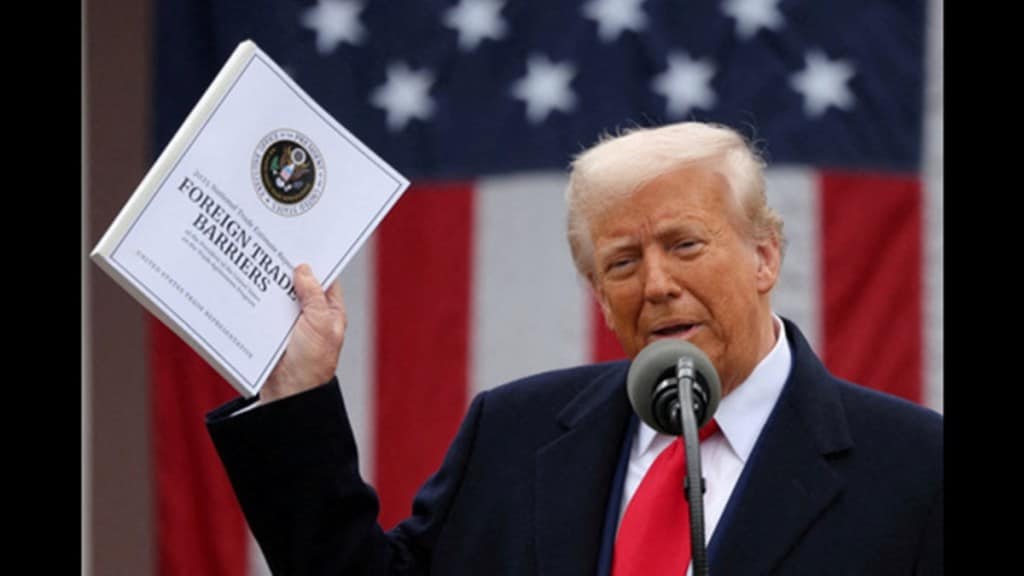Facing mounting financial market turmoil, President Donald Trump on Wednesday announced a 90-day pause on most new tariffs — a surprising pivot meant to contain global economic fallout. The move came just hours after sweeping tariff hikes had rattled stock markets and led to investor panic. Trump’s reversal included reducing the baseline reciprocal tariff rate to 10 per cent for most countries, down from the higher rates implemented days earlier.
At the same time, however, he intensified the US–China trade war by raising tariffs on Chinese imports to a staggering 125 per cent. “No other president would have done what I did. Somebody had to do it,” Trump told reporters, defending the tariffs.
Why did Trump pause tariffs on most countries for 90 days?
The policy reversal followed a sharp plunge in global markets, with US indices experiencing the worst volatility since the early days of the COVID-19 pandemic. “People were jumping a little bit out of line, they were getting yippy,” Trump said, using a golf term to describe the chaos.
Trump also echoed the White House’s assertion that numerous countries had approached the US seeking a place at the negotiation table.
“More than 75 countries have contacted U.S. representatives, and, at my strong urging, have not retaliated in any way, shape, or form,” Trump wrote on Truth Social. “In light of this, I have authorized a 90-day PAUSE and a significantly reduced Reciprocal Tariff of 10% during this period, effective immediately. Thank you for your attention to this matter!”
Before announcing tariff pause, Trump posted on Truth Social: “THIS IS A GREAT TIME TO BUY!!! DJT”. As a result of which, he was also accused of market manipulation.
US Bond market jitters influenced Trump’s tariff pause?
Treasury Secretary Scott Bessent also claimed the pause was due to interest from foreign governments seeking negotiation.
Also, concerns over growing instability in the US government bond market played a significant role in Trump’s decision to delay tariffs on most nations, according to a CNN report. Sources familiar with the matter revealed that Treasury Secretary Scott Bessent personally briefed Trump on the risks just before the 90-day tariff pause was announced.
Earlier on Wednesday, White House economic advisers had already alerted the president to a sharp selloff in US Treasury bonds — a red flag that alarmed both financial markets and policymakers.
Attempting to calm fears, Bessent later told Fox Business that the selloff was likely driven by investors offloading positions bought with borrowed funds. “I believe that there is nothing systemic about this — I think that it is an uncomfortable but normal deleveraging that’s going on in the bond market,” he said.
Bessent added that the decision to pause tariffs had brought more “certainty” to the markets.
Trump also acknowledged the market reaction, noting, “I was watching the bond market. The bond market is very tricky, but if you look at it now, it’s beautiful.”
Markets rebound
Asian stocks rebounded sharply following the announcement. Japan’s benchmark index surged by over 2,000 points on Thursday morning, riding the wave of a euphoric Wall Street rally sparked by Trump’s move.
Over the next 90 days, the US will hold “bespoke” negotiations with individual countries.


